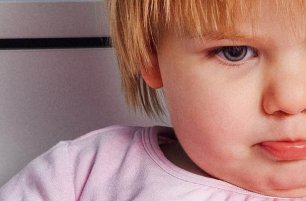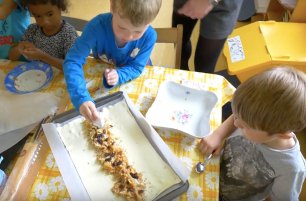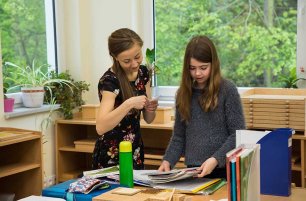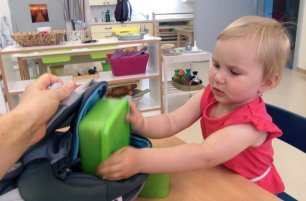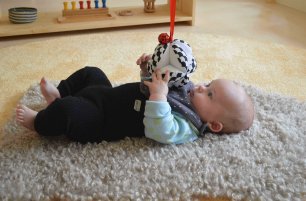Michaela Tučková - Toddler 2 Lead Teacher
Misha is excited to lead the Toddler 2 classroom after previously serving at IMSP as the Primary and Toddler substitute, Childcare teacher and Toddler co-teacher. Although she had originally pur-sued a degree i Physics, she developed an interest in Montessori education when volunteering in Montessori schools in the United States. She has completed her AMI Assistants to Infancy (ages 0-3) training and is currently pursuing a degree in Special Education. Like many others at IMSP, Misha loves to travel and explore other countries and cultures. When at home, she spends her free time reading, cooking, and with various arts and crafts.
What did you dream of being when you were a little child?
MT: For the longest time, I had a very traditional dream: I wanted to be an astronaut. My grandfather was a nuclear physicist with a special interest in astronomy, and I definitely inherited his love for the cosmos and its secrets. However, by the time I hit my teens, I realized that asthma and other health issues would never permit me that, and so I switched over to art, and up until college was certain that I would somehow make art (and physics and mathematics) a part of my career. I toyed with the idea of becoming a high school teacher in these subjects.
What did you do before you joined this school as a teacher?
MT: I’ve been working since I turned fifteen, whilst in high school and later university, so I amassed a large count of the usual odd part time jobs in customer service – fast food, cinemas, clerking at a bank, shopkeeping, even arranging flowers and making Christ-mas wreaths. My favourite one was a long-term position at Starbucks, where I – out of stubbornness and exasperation – completely rearranged the back-of-house storage in our cafe and ended up promoted to manager because of it. It was a wonderful experience and very empowering on a personal and professional level. You were also helping in Montessori schools in the USA. Tell us a little bit more about this experience. For personal reasons, I spent a number of summers in the US and volunteered at two Montessori schools, one in Boston, Massachusetts and one near Naples, Florida. The experience completely changed my life. I went in as a physics student, convinced I was heading for a career in electron microscopy. And suddenly out of nowhere I was assisting a classroom of non-walking infants, aged three months to a year, and just fell in love with all of it. Your background is in Physics.
Do you translate your knowledge in Physics to teaching?
MT: On the surface – not so much, to be honest. I was doing material physics which was very technical and focused on experiment-based work. I think if I were to work with elementary age children, it would come to play, alongside with my love for mathematics and geometry – the development of mathematical thinking and concepts fascinates me, and I think as a society we really ought to completely change the way we approach its education. But although I don’t think I will ever return to science professionally, I still have a real love for it, and I think it changed my worldview and attitude to life a lot. I always want to look at things, try to figure out how they work under the surface and understand them on a deeper level and make connections.
You lead the Toddler 2 classroom now. How do you see toddlers? What do you think about them?
MT: Unfortunately, I think that a lot of people believe that children that young can‘t be taught. That they “just” play, and we are nannies to them. There is a view of children, Toddlers especially, as extremely dependent little beings that need constant care that we have to do everything for. But that’s not only untrue but actually harmful to their needs and development. Toddler children, if you work with them and give them the space and opportunity, can do – and should do – so much for themselves. Instead, we work to give them as much independence in the classroom as possible. And of course we have special equipment to support us and support them. Everything is their size. Everything is safe for them to use. Everything is within their reach. So with this encouragement and being shown, patiently and in age-appropriate ways, they can do so much for themselves and for the classroom. For example, a two year old child can almost entirely dress themselves, prepare a simple meal, clean up afterwards, wash up, find a book and settle down for quiet time. Our children are proud of their skill and independence, and enjoy being useful and helping others. So often the thing that’s really in the toddler’s way is a loving parent who believes they have to do everything for them. Sometimes the most loving thing is to step away and let the child figure it him-self, even allow them to struggle and do things that are difficult.
What does your life look like outside of the school?
MT: I read a lot, play with our three cats, and do arts and crafts. I enjoy drawing, crochet, and recently I’ve started learning to sew, so that’s a lot of fun. And I also love to cook and bake. Between work and studying there’s never quite enough time for my hobbies and family but I try my best!
You are very artistically gifted and teach ceramics. Why do you think children should learn ceramics?
Whilst it doesn‘t necessarily have to be ceramics, I do think that children have a very real need for art. This means opportunities to explore with their senses, develop their creativity and self-expression, and have a wide variety of real, high-quality art materials and mediums to try. Art is integral to our humanity and I believe children have a right to be introduced to and experience it. Ceramics in particular is a wonderful thing for preschool children as the sensorial experience is so pleasant, and so different from what a lot of children spend most of their time with, these days – it’s wet and muddy and messy, you can make it smooth or rough, experiment with construction, it smells wonderful – all things that encourage a hands-on interaction that’s so important for the children’s development
How would you describe yourself if you had only 10 seconds?
MT: I think cheerful, smart, a bit messy, always trying my best. I am trying for kind – that’s I believe probably the best, most important thing to be.
Do you have any life motto?
MT: It’s not really a motto, but I often remind myself of two quotes: Joan Didion’s “Dwell in possibility” and Justice Ruth Bader Ginsburg’s “Anger is only a waste of your own time”. I can be an impatient person, and sometimes get frustrated too quickly. They are both good reminders to breathe, and look for the best in the world, and remember to work towards it.
